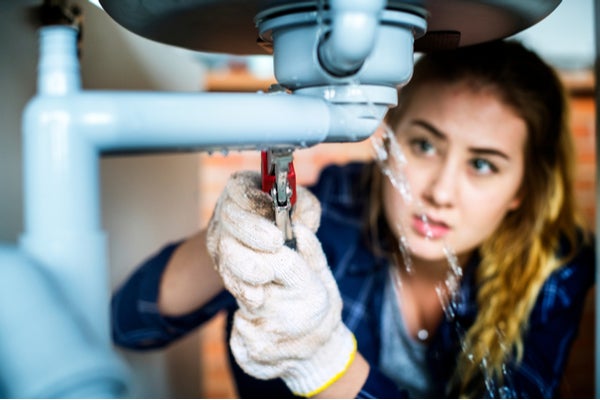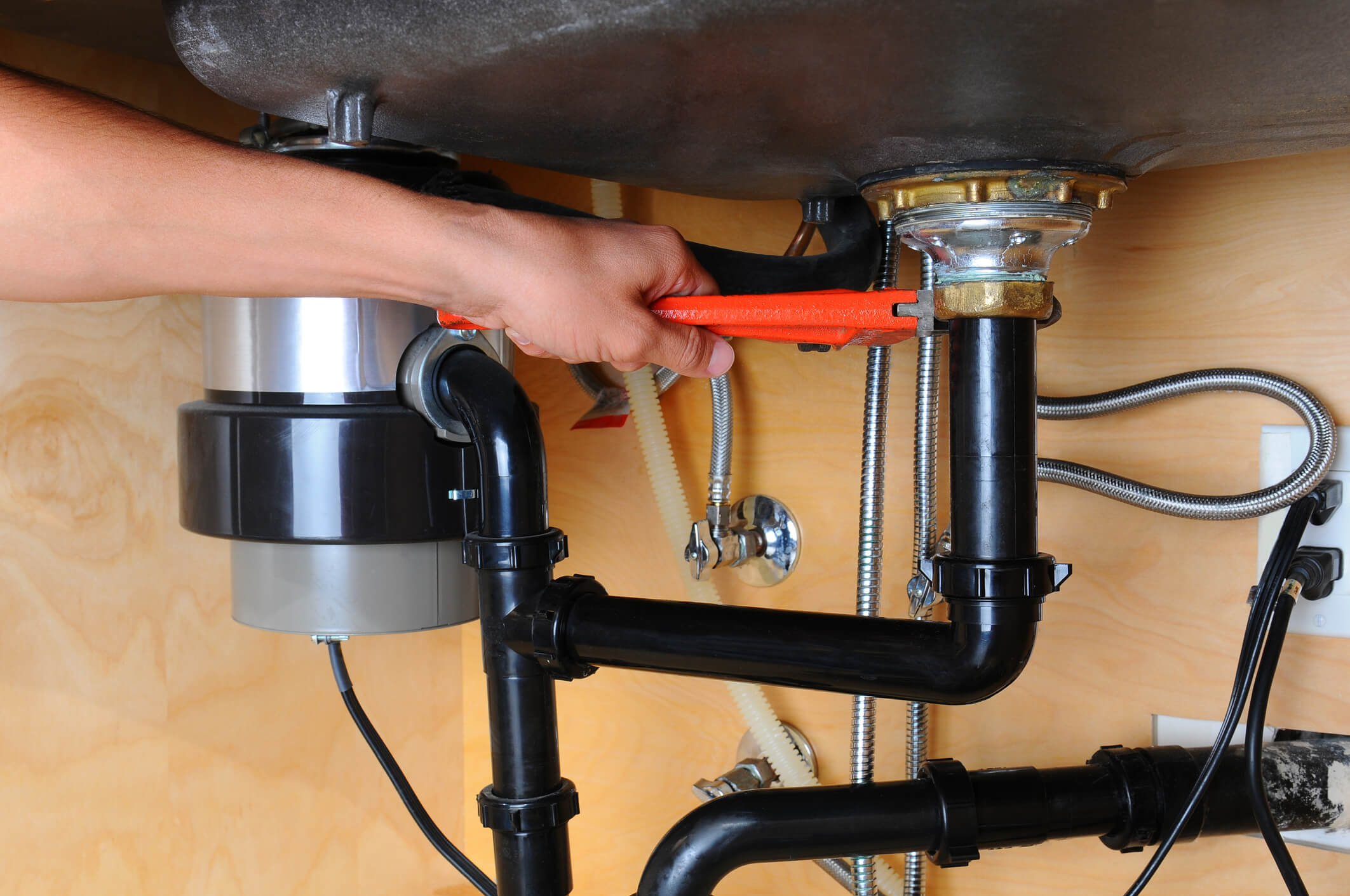Save Your Plumbing Systems: Six Major Oversights You Should Prevent
Save Your Plumbing Systems: Six Major Oversights You Should Prevent
Blog Article
Are you currently hunting for selective information about Ways to Make Your Pipes Last Longer?

The secret to long lasting devices, unsurprisingly, appertains upkeep. There's no set regulation that can guarantee your plumbing appliances a lengthy wear, but you can protect against unneeded damage and fixings by staying clear of poor plumbing routines.
You should stop doing these 6 things else you'll maintain calling your plumber over for minor faults.
Flushing every little thing
Yes, your commode drainpipe brings about the sewers, but that doesn't mean you need to unload just anything down the drain. Lots of 'flushable' materials are in fact excellent blockage beginners, as an example dental floss. Asides keeping obvious non-flushable materials like wires and plastics out of your bathroom, you ought to additionally avoid flushing cotton swab, menstrual items, wipes, daipers and also condoms down the commode drain.
DIYing every little thing
With plumbing, a stitch in time really does save 9. You can prevent a fullblown plumbing emergency by calling your plumber at the right time.
You might have found out a couple of plumbing hacks from your dad, but you should certainly understand where to draw a line and call a specialist. For instance, you may be able to repair a blockage yourself, however you should not try to transform a pipe. You can inequality pipes or overtighten a screw, causing more injury and also damage than you thought. Calling a plumber is a risk-free and also budget-friendly decision.
Utilizing too much drain cleaner
Using a drainpipe cleaner more than one or two times a month is a sign that something severe is going on within your pipes. Currently, as opposed to facing the main concern, you opt for a quick fix; a fizzy drain cleaner. Rightfully, a drain cleaner will take care of the blockage, but at what price?
The chemicals in a drain cleaner can hasten the rust of your pipelines. Add that to whatever underlying issue is triggering the blockage as well as you may have to a significant issue on your hands.
If you experience too many clogs, call your emergency plumber instead of making use of a drainpipe cleaner.
Putting grease in the sink
We know effectively getting rid of grease after a hearty meal is a pain. Yet simply pouring it away can do lasting damage to your pipelines. "The fat and also grease can obstruct your drainpipe terribly sufficient to compel you to call a plumber," clarifies Dawson. "Plumbing functions best when it's well cared for-- not abused with grease."
Not altering your dishwashing machine tubes
One easy method to guarantee that you use your dishwashing machine for many years is to change the hose at least once in 5 years. This additionally gets cleaning device tubes.
In time, food particles, soap and grease can develop obstructions within your pipelines. Changing them promptly will protect against any kind of presure develop that can damage the interior functions of your dish washer or washing equipment.
A strengthened steel intertwined hose pipe does a wonderful task of lengthening your equipment's usage time.
No wintertime precautions
Severe climate condition are bad for your pipes, particularly if they're constructed from steel. You need to shield your subjected pipelines, and your water container, even if you have a water heater. You ought to additionally turn off your yard hose valve and any other exterior water networks. These channels are electrical outlets for cool; you pipes can start to freeze from outside if you don't.
How Hard Water Damages Your Plumbing and Appliances
Hard water is no stranger to most households across America. This silent invader affects 85% of homes in the United States every day, wreaking havoc on pipes, plumbing fixtures, and water-using appliances.
Should you become a victim of hard water, you must understand exactly what it is and how it affects your plumbing and appliances. This will help you determine the correct measures to put in place to fix or prevent any problems that may arise.
First off, what exactly is “hard” water?
In short, “hard water” is used to describe water that contains relatively high amounts of dissolved minerals, primarily calcium and magnesium, and a host of trace metals. When rainwater falls from the sky (usually in a pure form), it absorbs the hardness minerals from rocks and soil, which changes it from soft to hard water.
What about my plumbing and appliances?
Mineral deposits from hard water can cause buildup on tubs, shower, sinks, faucets. But that’s only a small scratch of the surface. Those minerals can gradually build up inside pipes, fixtures, water heaters, washing machines, and dishwashers. Once they accumulate in those areas, they can clog pipes and create major problems throughout your plumbing system, from reduced water flow to increased pressure on pipes and fixtures.
This limescale buildup might affect some appliances, causing them to operate less efficiently and wear down faster. And the result? Higher energy bills, more (costly) plumbing replacements and repairs, and damaged appliances.
Keep in mind that certain types of plumbing are more susceptible to clogging than others. Copper, PVC, and PEX pipes are more resistant to hard water buildup and corrosion, but they can still get clogged or completely blocked by scale deposits.
How do I know if my water is hard?
White limescale buildup on plumbing fixtures (or any of the other signs mentioned above) is usually a good sign that your water is hard. If you suspect that you have hard water, you can simply shake up a small amount of dish soap and water in a closed container. If the mixture doesn’t create a lot of suds, you probably have hard water.
The most precise method, however, is to test your water with a DIY test kit (sold online or at local home centers or hardware stores) or send a water sample from your tap to a local lab to be tested. Be sure that you understand the nature of the test, the water condition being measured, and the significance of the test results.
Another way to obtain an estimate of water hardness is to check your annual water quality report to see if your water provider has reported any instance(s) of water hardness in your water supply.
https://www.springwellwater.com/how-hard-water-damages-your-plumbing-and-appliances/

Hopefully you enjoyed our excerpt about Leak Detection and Repair Without Destroying Your Home. Thanks a lot for spending some time to browse our piece of content. Appreciated our blog posting? Please share it. Help another person discover it. Thanks a lot for going through it.
Customer Reviews Report this page